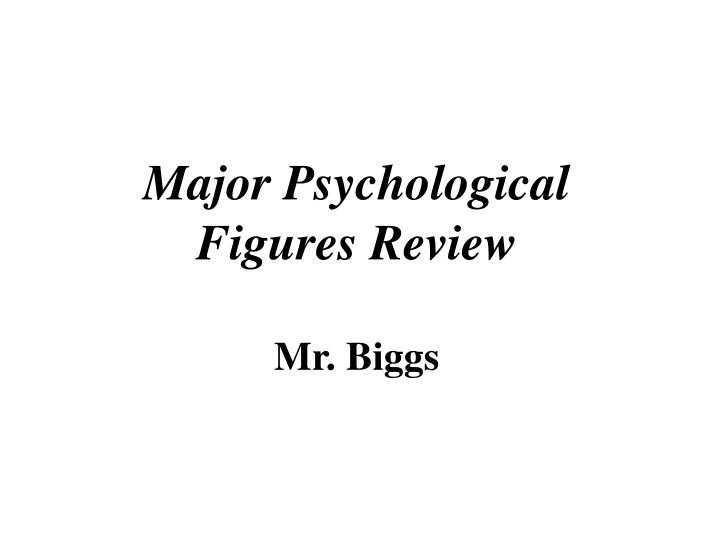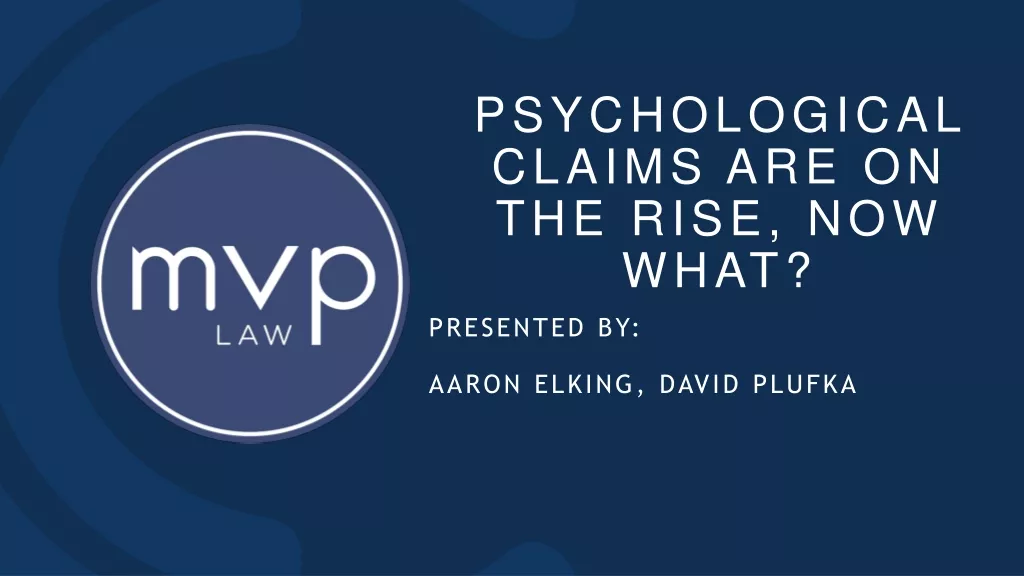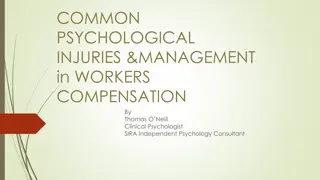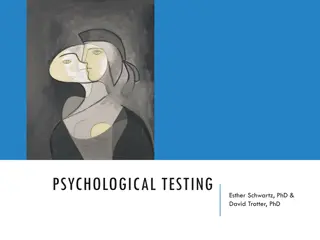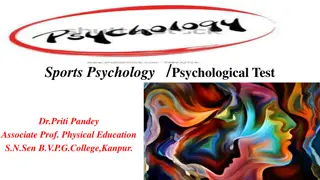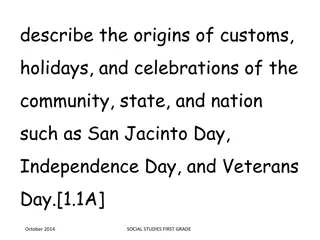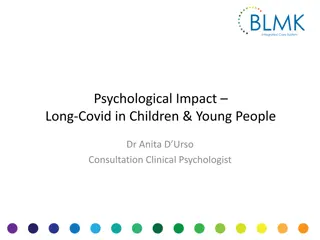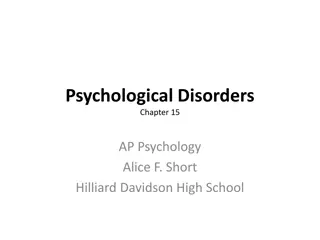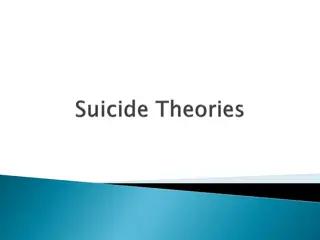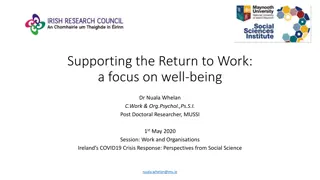Major Psychological Figures Review
Explore the significant contributions of major psychological figures such as Adler, Asch, Atkinson, Bandura, Beck, Binet, Cannon, and Chomsky. Delve into their theories on individual psychology, social conformity, memory storage, observational learning, cognitive therapy, intelligence, emotion, and language acquisition.
Download Presentation

Please find below an Image/Link to download the presentation.
The content on the website is provided AS IS for your information and personal use only. It may not be sold, licensed, or shared on other websites without obtaining consent from the author.If you encounter any issues during the download, it is possible that the publisher has removed the file from their server.
You are allowed to download the files provided on this website for personal or commercial use, subject to the condition that they are used lawfully. All files are the property of their respective owners.
The content on the website is provided AS IS for your information and personal use only. It may not be sold, licensed, or shared on other websites without obtaining consent from the author.
E N D
Presentation Transcript
Major Psychological Figures Review Mr. Biggs
Adler, Alfred - (18701937) Unit 1 He formed his own school of thought, which he called individual psychology. In his view, strivings for superiority drive people s behavior. He thought mental disorders were characterized by extreme feelings of inferiority and a desire for superiority over others.
Asch, Solomon - (19071996) Unit 1 He investigated social conformity by studying how people reacted when their perceptions of events were challenged by others. He found that most individuals changed their own opinions in order to agree with the group, even when the majority was clearly wrong.
Atkinson, Richard - (1938 ) Unit 1 He developed a three-stage model of memory storage.
Bandura, Albert - (1925 ) Unit 1 He focused on observational learning, or modeling. He showed that children learn behavior by watching others. He did a famous study involving Bobo dolls that demonstrated that children don t need punishment or reward to learn.
Beck, Aaron - (1921 ) Unit 1 A developer of cognitive therapy, which is now used for disorders ranging from depression to panic attacks, addictions, and eating disorders. His cognitive approach to therapy emphasizes using rational thoughts to overcome fears rather than trying to uncover the unconscious meaning of those fears.
Binet, Alfred - (18571911) Unit 1 A developer an intelligence scale. He intended the test to predict school performance and did not believe that it measured innate intelligence.
Cannon, Walter - (18711945) Unit 1 He developed the a theory of emotion, which holds that physical and emotional stimuli happen simultaneously, with no causal relationship.
Chomsky, Noam - (1928 ) Unit 2 He performed research that led to the decline of behaviorist theories about language acquisition. He proposed that humans are born with an innate language acquisition device that allows them to acquire language skills easily.
Darwin, Charles - (18091882) Unit 2 He outlined his theory of natural selection in his influential book On the Origin of Species. His ideas shaped the course of evolutionary studies, including evolutionary psychology.
Ebbinghaus, Hermann - (18501909) Unit 2 His work challenged the view that higher mental processes such as memory couldn t be studied scientifically. He was a philosopher, psychologist, and author of On Memory.
Ekman, Paul - (1934 ) Unit 2 An expert in emotional research and nonverbal communication. He is particularly well-known for his studies of emotional expression and the physiology of the face.
Unit 2 Ellis, Albert - (1913 2007) He developed a form of cognitive-behavioral therapy known as rational-emotive therapy. His rational-emotive therapy is based on the idea that self-defeating thoughts cause psychological problems.
Erikson, Erik - (19021994) Unit 2 A key contributor to the study of development across the life span. He proposed a theory that people go through eight distinct stages of development. In 1950, he published his most influential book, Childhood and Society.
Eysenck, Hans - (19161997) Unit 2 His research focused on the genetic foundations of personality. He believed that conditioning was important in personality formation but that personality grew largely out of genetic differences.
Festinger, Leon - (19191989) Unit 3 He developed the theory of cognitive dissonance. His research examined the efforts people made in order to view their attitudes, beliefs, and behaviors as consistent.
Freud, Sigmund - (18561939) Unit 3 His comprehensive theory of psychoanalysis sought to explain the structure of the human mind, human attitudes and behavior, mental disorders, and the origins of civilization. His ideas, particularly his emphasis on sexuality, were highly controversial in the repressive Victorian era in which he lived.
Unit 3 Galton, Sir Francis - (1822 1911) He advocated eugenics, the study of human improvement through selective breeding. He was interested in the idea that intelligence is inherited. He believed that intelligence is related to sensory ability and attempted to assess intelligence by measuring sensory abilities such as sensitivity to sound, color perception, and reaction time.
Gardner, Howard - (1943 ) Unit 3 His research focuses on creativity in adults and children. He proposed a theory of multiple intelligences, which has been highly influential among educators.
Helmholtz, Hermann von - (18211894) Unit 3 The inventor of the ophthalmoscope, an instrument for examining the eye. He lent further support to Young s theories of color. He also developed a sophisticated theory of harmony.
Hering, Ewald - (18341918) Unit 3 The developer of the opponent process theory of color vision, which accounted for some phenomena not explained by the Young- Helmholtz theory.
Hilgard, Ernest - (19042001) Unit 3 He studied the use of hypnosis in the treatment of children suffering from cancer. He was president of the International Society of Hypnosis in the 1970s.
Unit 4 Hodgkin, Sir Alan - (1914 1998) He worked on information transmission in neurons. He studied giant squid, whose neurons have giant axons.
Hubel, David - (1926 ) Unit 4 By recording impulses from individual brain cells of cats and monkeys, he demonstrated that specialized cells in the mammalian brain respond to complex visual features of the environment. He received the Nobel Prize in Physiology or Medicine for his discoveries about information processing in the visual system.
James, William - (18421910) Unit 4 He believed that the experience of emotion arises from bodily expression. His landmark book, The Principles of Psychology, was published in 1890. He also wrote other important books, The Varieties of Religious Experience and Pragmatism.
Jung, Carl - (18751961) Unit 4 He began his own school of thought, which he called analytical psychology. He believed that Freud placed too much emphasis on the sexual drive of humans. He thought the will to live was a stronger motivation than sexual drive.
Kinsey, Alfred - (18941956) Unit 4 A leading sex researcher. As a biologist, he shocked the American public by publishing Sexual Behavior in the Human Male (1948), a best-selling summary of his research into sexual behavior. He next published Sexual Behavior in the Human Female (1953).
Kohlberg, Lawrence - (19271987) Unit 4 He had a passionate commitment to building a just society, and this commitment fueled his research. He drew on philosophy and sociology as well as psychology to argue that people go through sequential stages of moral judgment.
Lazarus, Richard - (19222002) Unit 4 His theory of emotion centered on the concept of appraisal, or how a person evaluates the personal impact of an event. He conducted several studies on the link between emotion and cognition.
Lewin, Kurt - (18901947) Unit 5 The founder of the field of social psychology. He studied interaction among races in particular and is famous for the development of field theory, which holds that human behavior is determined both by the person and the environment.
Loftus, Elizabeth - (1944 ) Unit 5 A memory researcher renowned for establishing how the misinformation effect might affect the criminal justice system.
Marcia, James - (1937 ) Unit 5 He described four identity states, based on where people stand on the path to identity. The four states are identity foreclosure, identity moratorium, identity diffusion, and identity achievement.
Unit 5 Maslow, Abraham - (1908 1970) He believed that human beings needs are arranged like a ladder. He said that basic needs such as the needs for oxygen, food, and water are at the bottom of this ladder, while higher needs such as the need to achieve one s full potential are at the top of the ladder.
Masters, William - (19152001) Unit 5 His book The Human Sexual Response on an eleven-year project that investigated human sexuality. In his laboratory studies, research subjects wore instruments that monitored their physiological signs while they engaged in sexual activities. His work changed people s perceptions of human sexuality.
Melzack, Ronald - (1929 ) Unit 5 He developed the gate-control theory of pain, which states that perception of pain is related to past experience of pain. His theory led to the discovery of endorphins and other natural painkillers produced by the body.
Milgram, Stanley - (19331984) Unit 5 He conducted the controversial research study of obedience to authority. He found that his experiment subjects were often so obedient to an authority figure that they were willing to cause serious harm and suffering to others.
Mischel, Walter - (1930 ) Unit 6 His research focused on personality formation and called into question the idea of stable personality traits.
Unit 6 Pavlov, Ivan - (1849 1936) He made his conditioned reflex discovery while studying how dog saliva related to the function of the stomach. He found that when he repeatedly gave a dog food after ringing a bell, the dog began to salivate for false alarms too. The bell rang, and the dog salivated, even with no food in sight.
Piaget, Jean - (18961980) Unit 6 He argued that children develop their thinking capacity in stages and that the progression through these stages depends on a genetically determined timetable. His research changed the way people viewed education, showing that children actively explore the world and develop their own hypotheses about what they observe.
Rescorla, Robert - (1935 ) Unit 6 As a modern theorist of classical conditioning, he has made numerous refinements to classical conditioning theories.
Rogers, Carl - (19021987) Unit 6 He proposed the person-centered or client- centered theory of psychology. He asserted that people s self-concepts determine their behavior and relationships with others. He thought that a therapist s unconditional positive regard could help clients to undergo psychotherapeutic personality change.
Schachter, Stanley - (19221997) Unit 6 Developed the two-factor theory of emotion. He believed that emotions come both from physiological stimuli and the cognitive interpretation of that stimuli.
Unit 6 Seligman, Martin - (1942 ) A pioneer in the field of positive psychology, the study of what makes people happy and good, in contrast to traditional clinical psychology, which focuses on what makes people distressed.
Selye, Hans - (19071982) Unit 7 While doing laboratory research on rat subjects, he found that many different types of stressors, such as heat, cold, electric shock, and restraint, produced the same physiological response. He concluded that the physiological response to stress is nonspecific.
Skinner, B. F. - (19041990) Unit 7 He built on Pavlov s work to develop theories of operant behavior. He wrote The Behavior of Organisms in 1938, in which he described his work on operant behavior.
Spearman, Charles - (18631945) Unit 7 He theorized the existence of a general type of intelligence, the g factor, that underlies all types of intelligence.
Sperry, Roger - (19131994) Unit 7 A pioneer in the study of lateralization, the fact that the right and left hemispheres of the brain regulate different functions. He examined people who had gone through split-brain surgery, an operation that separates the two brain hemispheres.
Unit 7 Sternberg, Robert - (1949 ) He developed the triarchic theory of intelligence. He proposed that there are three aspects to intelligence: componential, experiential, and contextual.
Terman, Lewis - (18771956) Unit 7 He developed the Stanford-Binet Intelligence Scale in 1916. He believed in the existence of innate differences in intelligence and supported the eugenics movement of his time. He advocated widespread use of intelligence tests.
Thorndike, Edward - (18741949) Unit 7 He formulated the law of effect, among other theories of learning. He primarily focused on animal behavior.
